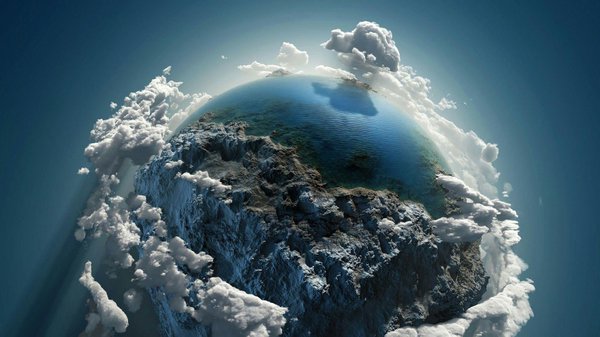Global warming has long ceased to be a theoretical threat somewhere in the distant future. We witness its consequences every day in the form of abnormal heat, destructive hurricanes, vanishing glaciers, and changing ecosystems. For Portugal—a country rich in nature and with a long coastline—these changes bring particular risks. Let’s take a closer look at how exactly our planet is transforming and what it means for us today.
Melting Glaciers and Rising Sea Levels
Glaciers around the world are melting at an unprecedented rate. Greenland alone loses about 260 billion tons of ice annually. These are not just numbers—meltwater directly affects the level of the world’s oceans, which has risen by 20 cm since the early 20th century. That may not sound like much, but even this increase intensifies coastal flooding and erosion.
In Portugal, the problem is particularly noticeable. Areas like the Algarve and the Tagus River estuary are already experiencing flooding. If the process continues at the same pace, sea levels could rise by another meter by 2100, putting entire neighborhoods of Lisbon and other coastal cities at risk. Not only people’s homes are under threat, but also unique ecosystems—such as the salt marshes in the Ria Formosa reserve, where migratory birds nest.
Extreme Weather Events
The climate is becoming increasingly unpredictable. Heatwaves that used to occur once a decade now happen almost every summer. In 2022, Portugal experienced one of the hottest periods in recorded history—temperatures in some regions reached 47°C. Such heat is not just uncomfortable—it’s life-threatening, especially for the elderly and for those working outdoors.
But heat is not the only problem. Climate change is also making droughts more prolonged. In recent years, southern Portugal has suffered from water shortages, seriously affecting agriculture. Vineyards, olive groves, and other traditional crops are under threat. At the same time, sudden downpours are becoming more frequent, leading to destructive floods like the one that occurred in Lisbon in 2021.
Changes in the Oceans
Oceans are the main “buffer” mitigating the effects of global warming, but even they are no longer coping. Water absorbs not only heat but also excess carbon dioxide, which leads to acidification. This is a disaster for marine life—corals die, shellfish cannot form shells, and fish are forced to migrate in search of suitable conditions.
For Portugal, where fishing is an important economic sector, this is a serious problem. Traditional commercial species such as sardines and cod are shifting north to colder waters. Meanwhile, new species not typical for these latitudes are appearing in Portuguese waters—such as tropical jellyfish and even sharks that were previously not seen here.
Another threat is the intensification of storm activity. Although Portugal is not in the tropical hurricane zone, scientists note that ocean warming is making storms more powerful. This means that coastal cities will increasingly suffer from destructive waves and flooding.
Threats to Biodiversity
Portugal’s nature is unique, but climate change is threatening many species. Cork oaks, which are not only a symbol of the country but also an important economic resource, are suffering from drought. Without enough water, trees weaken and become more vulnerable to disease.
Mediterranean forests—home to rare species of birds and animals—are also at risk. Increasing wildfires destroy their habitat, while rising temperatures alter traditional migratory routes of birds. Even bees, which are crucial for pollinating many crops, are declining in numbers due to climate change.
Economic and Social Consequences
Climate change is not only an environmental issue but also an economic one. Agriculture, tourism, and fishing—key sectors in Portugal—are already suffering from the effects of global warming.
Wine production, for example, is facing serious challenges. Rising temperatures change the taste of grapes, and droughts reduce yields. Some producers are already experimenting with new grape varieties that are more heat-resistant, but it’s a long and complex process.
Tourism, which generates a significant portion of the country’s income, is also at risk. Heatwaves make summer months less comfortable for holidays, and forest fires deter tourists. At the same time, rising sea levels threaten popular beach resorts.
What Can Be Done?
Although the situation looks alarming, it’s not too late to act. Portugal is already taking steps in the right direction—the country is actively developing renewable energy, especially solar and wind. In 2023, over 60% of electricity came from clean sources, and that number continues to grow.
But government efforts alone are not enough. Each person can contribute:
- Reduce plastic consumption, which pollutes the oceans and worsens the climate crisis.
- Conserve water, especially in drought-prone regions.
- Support environmental initiatives such as tree planting or beach cleanups.
- Choose sustainable transport—bicycles, public transit, or electric vehicles instead of gasoline-powered cars.
Global warming is a reality we are already facing today. But if we act together, we still have a chance to mitigate its consequences and preserve the planet for future generations. The question is not whether the climate will continue to change, but how quickly we can adapt and reduce our impact on the environment.


